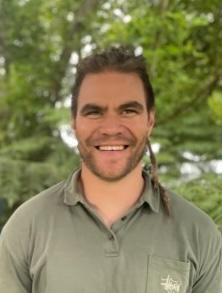
A highly successful 2024 social media campaign highlighting rangatahi well-being underscores the importance of community voices, rather than messaging from government.
EIT researcher, Raun Makirere Haerewa worked with rangatahi to spread the message on the importance of health and well-being, and it proved much more successful than health guidelines developed in Wellington.
Raun was a member of the ‘Nourishing Hawke’s Bay’ project with Professor Boyd Swinburn and Professor David Tipene-Leach. The project was developed to identify how nutrition and well-being guidelines could be more relevant and useful to rangatahi. Their conversations with youth in the Hawkes Bay revealed that the current Ministry of Health guidelines were not working for them.
“Rangatahi between the ages of 12 through to 20 had no idea of what the Ministry of Health guidelines were or where to find them. And after we presented them the guidelines, rangatahi thought they were out of date, overly complex, and patronizing. The government had missed the mark by miles,” says Raun.
The research team set about collaborating with local rangatahi to co-design a more relevant and persuasive set of guidelines for nutrition and wellbeing.
A core group of rangatahi was established and after their first wānanga with researchers, created a new set of guidelines: 10 for nutrition and 10 for well-being. The core group then went back into their schools for feedback and fine-tuning.
“The key messages from the schools were to get rid of jargon, to make language and tone encouraging,” says Raun. The importance of relationships was also at the heart of messaging. Afterwards, the messaging was refined and the team, including rangatahi, set about asking themselves the best way to distribute the guidelines to youth in the region and beyond.
Rangatahi were adamant that a social media campaign was the best way to access young people. The team then enlisted the help of a Gisborne film crew, several well-known social media influencers, and a campaign was created. “They came up with 20 amazing messages that generated views in the hundreds of thousands, so there is no doubt that the campaign was highly successful," says Raun.
He believes this success underscores how powerful health messaging can be when you understand your communities. “This research illustrates how money is wasted by the government when it does not understand who their target audience is. When you know your target audience, and they are involved in the process, the results can be very powerful,” he says.
“Through this process we demonstrated how messages could be much better presented to rangatahi audiences – and how appropriate engagement is key”.
Raun believes health messaging to rangatahi is crucial because teenage years are when they are laying down habits that will last their lifetimes. “It is also a time of massive change and growth in their bodies, so it is important that they understand how to keep themselves well both physically, mentally and spiritually.”
“People want to see themselves reflected in health messages that are authentic to them, not messaging that comes from advertising agencies and bureaucrats sitting in Wellington.”
Since the campaign, schools and other health organisations have been excited to use the messages and adapt what the research team has found for their own purposes. “Sport Bay of Plenty loves it and wants to modify it for its own region. The interest is high to grow and build on the campaign. It has potential to be used for pakeke, and schools have said they want to adapt it for their curriculum.”
Professor Swinburn presented the research to Government Ministers and policy makers last year, but little progress has been made on adapting the current guidelines.